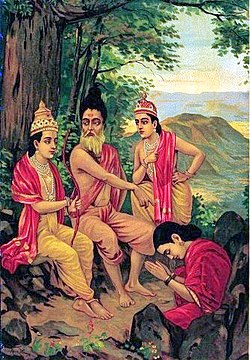
Ramayana is one of the two major Sanskrit ancient epics (Itihasas) of Hindu literature. It was composed by sage Valmiki. This is a list of important figures that appear in the epic.

Ramayana is one of the two major Sanskrit ancient epics (Itihasas) of Hindu literature. It was composed by sage Valmiki. This is a list of important figures that appear in the epic.





